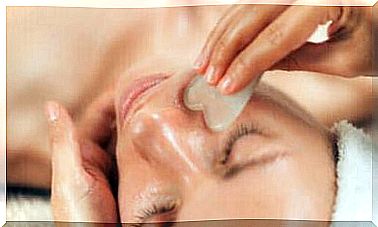Why Is It Good To Take A Hot Bath Before Bed?

Taking a warm bath before bedtime is one of the techniques that specialists recommend for better sleep. Although it is not a solution to chronic problems such as insomnia, it seems to be a good help in inducing rest and improving sleep quality.
In fact, a systematic review led by Shahab Haghayegh, a researcher at the Department of Biomedical Engineering at the University of Texas, supports the benefits of taking a hot bath and suggests doing so at a specific time before bedtime.
Want to know more about it?
A warm bath before bed to sleep better: Why does it help?
According to the systematic analysis of Haghayegh and his team , a bath of warm water before going to sleep helps to change the internal temperature, thus promoting rest. To reach these conclusions, the researchers reviewed 5,322 studies and used at least a dozen using more robust methods.
The final report was published in Sleep Medicine Reviews and says that it helps people to sleep better by taking a warm bath at a temperature between 40 and 42 ° C. Specifically, it seems to help people fall asleep about 10 minutes faster than usual.
These findings were made possible after analysis of the effects of “passive water-based body heat” on various sleep indicators such as:
- The latency of sleep onset, which is the time it takes to go from full wakefulness to sleep.
- Sleep efficiency.
- Subjective sleep quality.

Body temperature and sleep
Over time, scientific research has established that circadian rhythms regulate functions such as sleep and body temperature. Thus, researchers have also determined that body temperature rises 2 to 3 degrees in the late afternoon or evening. During sleep, on the other hand, it is lower.
When it’s time to go to bed, the average person undergoes a drop of 3 to 6 ° C in body temperature. The lowest level occurs between the middle and last sleep period. When it’s time to wake up, the temperature starts to rise again.
Paradoxically, a hot bath seems to cool the body by stimulating blood circulation from the inner core to the periphery, that is, hands and feet. When this happens, the pineal gland signals the production of melatonin, and sleep is induced.
Some may wonder: Why hot water and not cold? Although at first glance it may seem more logical to use cold water to lower the temperature, the mechanism does not work this way. Cold water causes a fight or flight reaction in the body, which increases the state of alertness.
Therefore, the recommendation is simple: A shower with hot water for about 10 minutes, 90 minutes before going to bed. However, as the evidence is still limited, it is important to be careful. We can not forget that excessively hot showers are associated with side effects.

What else can we do to sleep better?
As we have seen, a hot shower can be an option when sleep problems occur. However, there are other recommendations we can take into consideration to contribute to a good sleep. According to information from the National Sleep Foundation, these may include:
- Maintain a regular sleep routine. That is, going to bed and getting up at the same time, even on the weekends.
- Avoid long afternoon naps. A nap of 20 or 30 minutes is enough. If you have trouble sleeping at night, it is better to avoid napping.
- Exercise physically. Both moderate and intense exercise have beneficial effects on rest.
- Provide a comfortable and quiet environment in the room. The bed should be clean and comfortable. Also, avoid distracting elements such as mobile devices, televisions, computers, etc.
- Avoid taking stimulants. This includes alcohol, tobacco and caffeine.
- Try relaxing activities. This can include reading a book, meditating, doing breathing exercises, listening to natural sounds.
In conclusion, it is also important to keep in mind that in case of persistent difficulty sleeping or insomnia, it is best to do go to a professional. A specialist in sleep disorders will be able to help determine the origin of the problem and the most appropriate treatments.









